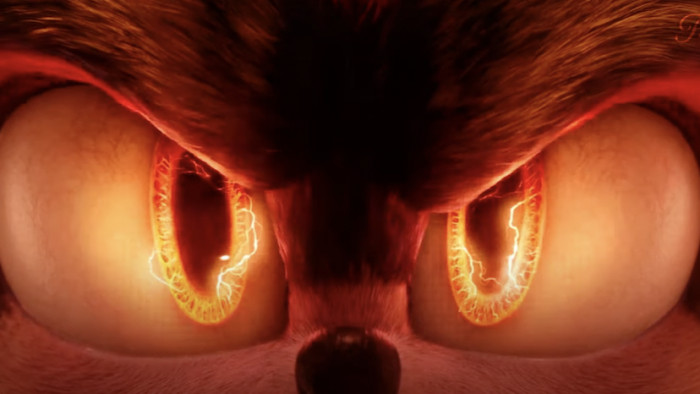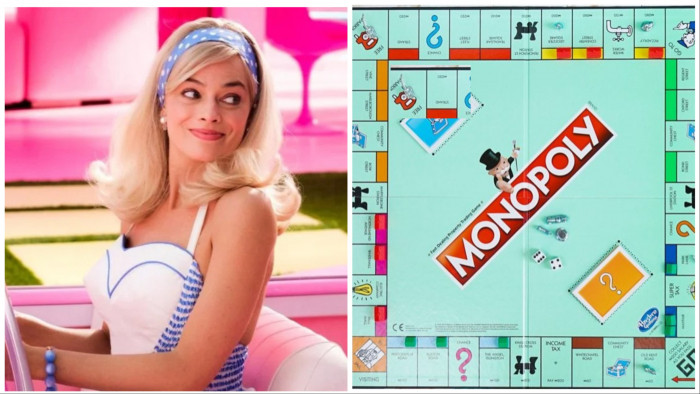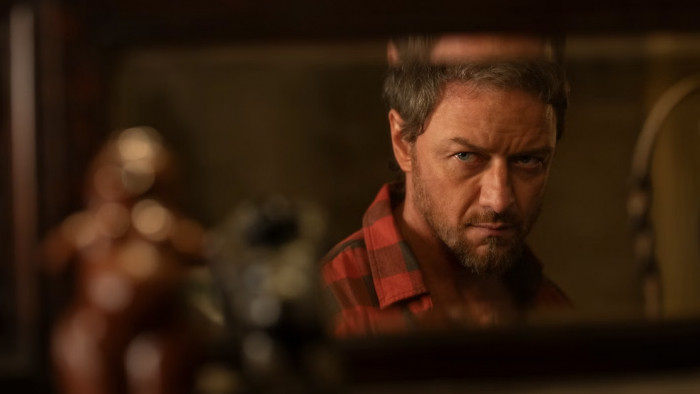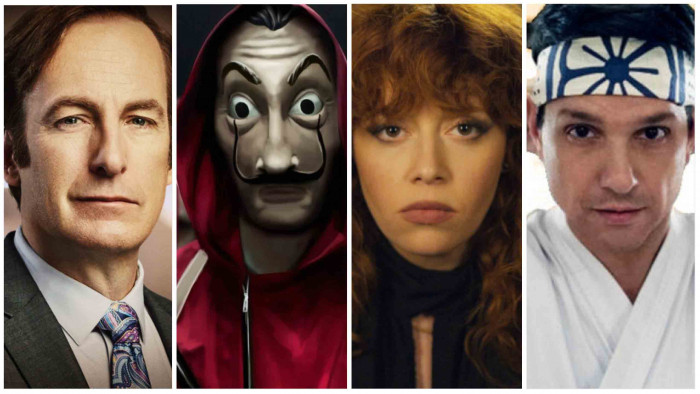Talking haircuts and Dunkirk with Cillian Murphy in a hall of mirrors
"To an actor, nostalgia is death. The next piece I do will be the best piece I do."


For an actor that will later express little interest in watching himself on screen, it seems nothing short of cruel for ShortList to gently force Cillian Murphy into a box walled with mirrors, inflicting projections of his own face back at himself. This is the sort of thing that, after spending the morning and some of the afternoon with the man, I think might actually be his idea of Hell; constantly examining himself from different angles, every micro-tilt of his jaw sending a prism of cheekbones shooting back at him from infinite alternate directions.
“It’s all very Trainspotting, this, isn’t it?” Murphy notes, to nobody in particular, from inside the mirrored coffin. I think I know what he means; the blue lighting casts a sort of seedy, strip-light glow over the space, even though we’re in one of London’s most prestigious hotels.
Let yourself get high-minded for a minute, and that blue glow could be reminiscent of the kind of subtle electricity Murphy instils in his performances. His name has become synonymous with a particularly cerebral kind of role; unpredictable, charged and weird. There’s the corrupt and psychotic Scarecrow of Batman Begins, the petulant, emotionally numb Robert Michael Fischer in Inception. On Peaky Blinders, he conveys postwar PTSD in the fragile, eruptive gang leader Tommy Shelby, and even in this year’s trigger-happy adrenal rush Free Fire, he brought a surprising amount of emotional heft to what was essentially a skull-rattling 90-minute shoot-’em-up.
He’s become known for playing imposing and unhinged leading men; alpha males crushed in a toxic vice. I imagine him tall and imposing, but in real life he’s slight and elfish; his Peaky Blinders barnet, sides shorn down to stubble, lends even more of a hipster boyishness to him. He recently turned 41 but could easily pass for half that, though I decide not to bring it up. No 41-year-old wants to hear that, do they?
“Time just flies by,” he says later, with a shrug. “It’s mad to think I’ve been doing this for 20 years. But people like the undercut thing; people go to the barber and ask for a ‘Peaky cut’. It’s crazy that people like it, it’s not grown on me in four years now. I normally keep my
hair long.”
It’s very ‘East London’, I point out to him.
“But do they realise,” he says, so quick that I think this must have come up before, “the people in turtlenecks in Hackney with this haircut, do they realise it was styled this way to prevent lice? Tell ’em they’ve got the lice cut, see what they say then.”
It suits him, so I tell him. “Well,” he says, flicking his finger to the door. “You know where to go if you want one.”

This idea that Murphy could be an IPA-guzzling millennial goes out the window quite quickly after meeting him, because the man is an old soul. He has a calm, withheld demeanour that suggests he knows what he’s doing, and he speaks slowly because he isn’t in a rush to express his thoughts. Being under the gaze of his big, pale eyes – sharp and blue like chips of ice – feels like being studied by a bird of prey.
“Having my photo taken isn’t my favourite thing in the world,” he admits, once we’re out of the basement and sitting in a pleasant, frilly hotel suite overlooking the River Thames. “Give me a character and I’m fine.”
The role we’re ostensibly here to discuss is his character in Christopher Nolan’s summer war epic Dunkirk, but this is tricky to pin down, because critics haven’t been shown the film yet – the name of Murphy’s character hasn’t even been made public. Help us out, Cillian.
“It’s different to other war films, because most are about the offensive and victory, but ultimately this is about a defeat and a retreat,” he explains. “It’s the antithesis of standard warfare.”
He describes the bulk of his filming as “bobbing about on a tiny boat near Holland”, but even then doesn’t seem to want to go into much more detail. Despite last year’s anthropoid and the aforementioned roles, he isn’t drawn to films about war, he says. No more than any other genre, though he does admit that he’s gained some insight into what it does to young men.
“Tom Shelby was formed by his experiences in the First World War. If he were walking around today he’d be severely damaged, a PTSD victim,” he says. “We had the term ‘shellshock’ to describe it back then, but we didn’t know how to deal with them – we just sent them away, spat them back into society. Imagine trying to process all that horror in dangerous, damaging and unhealthy ways? All I can do, as a middle-class Irish chap, is try to imagine what it must be like to witness things that I can’t really conceive. That’s all you can do.”
So why do so many of Murphy’s roles involve torment and conflict? “A good man’s life is not very interesting, cinematically,” he explains. “But in Dunkirk, trying to get into the heads of these young men, 400,000 of them on the corner of a beach in France, with German bombers just picking them off… trying to get into the heads of what it must have been like to live like that, it must have felt like the end of the world. That’s fascinating. Correct me if I’m wrong, but I can’t think of a novel where an upstanding member of society works, pays his bills and dies.” He stares at me again. “You may have the most extraordinary, interesting life, I don’t know,” he says. I’m not sure if it’s a joke or a burn.

Murphy says he gets a thrill exploring how people react under pressure. He’s dry and sarcastic, which is why his more sincere thoughts on acting end up sounding less trite than they would from the mouth of one of his Hollywood peers. “I’m always interested in shining a light into the unexplored cavities of the human psyche,” he says, which, though it sounds like the kind of hyperbolic prose an actor is taught to belch out at a young age, with him it feels like it does hold up. More so than any one of his characters, Murphy is insistent in putting his own abilities under pressure. In fact, he seems to revel in it.
It came from his background in theatre, he explains. “I have a real hunger for it, because you connect with an audience, and that’s really quite something.” He starts talking about Misterman, a one-man show he performed in 2012, and seems to become less icy, glowing with pride as he recounts the terrifying, crushing pressure he was under every single day.
“You have no one else to rely on, it’s extraordinary,” he says. Up until now, Cillian Murphy has been distant, has rarely smiled all day and has only once let off a rough bark of a laugh, but now he’s brimming. “If you dropped lines or forgot them, it was on you. You can go back, you can control the temperature of the audience in the room, and you’re entirely alone. As a screen actor, you make your performance, give it to the director and he then creates this thing. You abdicate all responsibility, it’s gone. If you’re sh*t on film, you’re sh*t forever, but if you’re sh*t at theatre you can fix it.”
I suppose even the Cillian Murphys of the world think some of their work is ‘sh*t forever’, or permanently desecrated, which, considering no actor can make critically acclaimed hit after hit forever, is quite a bleak thing to wrestle with. When Murphy says he doesn’t really like watching his work, it starts to make sense: it’s permanent.
“I want to see the film at the premiere, and that will be it,” he says. “I’ll see it once. I don’t know anyone who pores over their work. Because the impulse is always the next – the next piece I do will be the best piece I do. To an actor, nostalgia is death. When you look at your work from 10 years ago and think that was the apotheosis, well, you’re f*cked really. It’s got to be forward thinking.”

Don’t bask in what you’ve already achieved, look ahead, the best is yet to come and so on. I like his philosophy – in principle, anyway. Murphy paints a picture of a man in constant motion, refusing to stay still. And that’s great, but… come on. 28 Days Later. Breakfast On Pluto. Even his current starring role as the face of Stella McCartney’s new menswear campaign is more bewitching than it has any right to be. Surely this kind of work deserves to be basked in, doesn’t it? Live it up! You’ve earned the right to bask. I put it to him, but he shakes his head slowly.
“It’s more that if I didn’t have [my] attitude, the engine would stop. It’s about self-respect as an actor; if at any time it feels like you’re moving backward – I think this goes for any artform, really – if at any time it feels like a safe place, then you’re not making great work.”
And yet for someone so dismissive of safe places and that idea of routine, Murphy’s relationship with Nolan has enabled some of his best work to date – isn’t it quite safe working with a director who, as with Dunkirk, literally writes parts for him and approaches him with work? Murphy raises an eyebrow.
“Look, I mean you never know if he’s going to call you or not,” he says, flatly. “The thing about him is: yes, there are big set pieces, but his priority is characterisation. That’s how he gets such strong performances from his actors. That’s generally how it’s been since I’ve known him.”
And he goes on to say that, set pieces aside, this is a fundamentally human film – and a war story like nothing else he had undertaken – so he couldn’t be further away from a comfort zone.
“It’s the acting thing I signed up for,” he says, looking around the room. “I suppose this thing, all of this, really, is ancillary. Necessity, I suppose. But,” he says, scooting forward, “it’s good to have a decompression period. This constant investigating of the psyche, depending on the level of the thing… you really leave a bit of yourself behind.”
He appears momentarily haunted by his own thought; that he might be unravelling and unspooling with every project he does, and for the first time today, Murphy looks all of his 41 years, as if the weight of his life’s work just hit him like a tidal wave.
“When I’m not working,” he says quietly, “the movie industry is the last thing that enters my mind. I have a dog, I like to run.” Another pause.
“I have a very simple life.”
Dunkirk is at cinemas from 21 July








